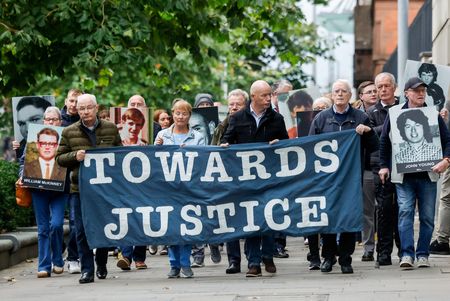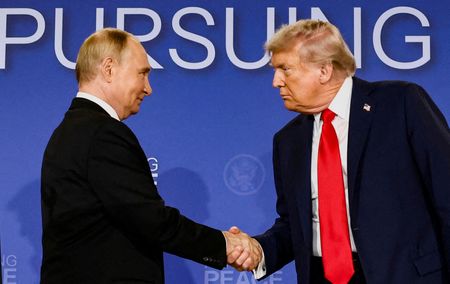BELFAST (Reuters) -A judgment in the trial of the sole British soldier charged with murder over the 1972 “Bloody Sunday” killings of 13 unarmed Catholic civil rights marchers in Northern Ireland will be given on October 23, the judge said on Thursday.
The soldier, who cannot be identified and is known as Soldier F, is accused of killing two men and attempting to kill five others when members of a British army regiment opened fire in the mainly Irish nationalist city of Londonderry.
He had previously pleaded not guilty to the seven charges and was not called to give evidence during the one-month trial that was heard without a jury.
Bloody Sunday was the deadliest incident of three decades of sectarian violence involving nationalists seeking a united Ireland, unionists wanting to remain part of the United Kingdom and British forces. A 1998 peace deal largely ended the bloodshed.
Lawyers for the prosecution told the court on Thursday that the only question was whether Soldier F participated in the shooting as a principal or a secondary party.
Defence lawyers did not call any witnesses and said that military statements taken over 50 years ago were manifestly unreliable with no independent supporting evidence offered to back the prosecution case.
That made for a “fundamentally flawed case” with a “stream of contaminated evidence”, Mark Mulholland, a lawyer for Soldier F, said on Thursday.
Earlier in the trial, Mulholland read a short statement Soldier F gave to police in 2016, in which he said that while he was sure he properly discharged his duties as a soldier that day, he no longer had any reliable recollection of the events and therefore was unable to answer the officers’ questions.
The British government apologised for the “unjustified and unjustifiable” killings in 2010 after a judicial inquiry found that the victims were innocent and had posed no threat to the military.
(Reporting by Amanda Ferguson, writing by Padraic HalpinEditing by Tomasz Janowski)

